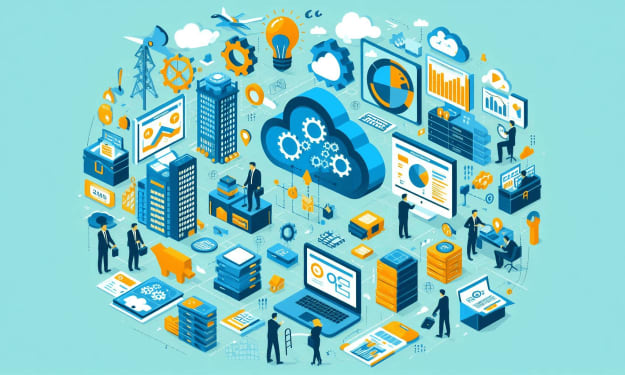Exploring the Latest Trends in the Tech Industry
Tech trends: Latest innovations

Introduction:
The tech industry is constantly evolving, with new trends and innovations emerging at a rapid pace. In this article, we will delve into some of the latest trends that are shaping the tech industry landscape. From advancements in artificial intelligence (AI) and machine learning (ML) to the rise of decentralized finance (DeFi) and the growing influence of quantum computing, these trends are poised to revolutionize various sectors and drive the next wave of technological advancements.
Artificial Intelligence (AI) and Machine Learning (ML):
AI and ML have become integral parts of numerous industries, ranging from healthcare and finance to transportation and entertainment. In recent years, we have witnessed significant advancements in natural language processing (NLP), computer vision, and deep learning algorithms. These developments have paved the way for voice assistants, autonomous vehicles, facial recognition systems, and personalized recommendation engines. As AI continues to mature, ethical considerations and responsible AI implementation have gained prominence.
Internet of Things (IoT):
The Internet of Things has expanded beyond mere smart home devices to encompass a wide range of applications in industries such as agriculture, manufacturing, and healthcare. The proliferation of IoT devices, coupled with advancements in connectivity and data analytics, has paved the way for smart cities, predictive maintenance, and remote monitoring. However, security and privacy concerns surrounding IoT networks remain a challenge that needs to be addressed for widespread adoption.
5G Technology:
The deployment of 5G networks is expected to revolutionize connectivity by providing faster speeds, lower latency, and increased bandwidth. This technology will enable innovations such as autonomous vehicles, remote surgery, and immersive augmented reality (AR) and virtual reality (VR) experiences. As 5G networks continue to roll out globally, businesses are exploring the potential for enhanced IoT applications and real-time data processing.
Decentralized Finance (DeFi):
Decentralized finance, often referred to as DeFi, has gained significant traction in the past few years. Built on blockchain technology, DeFi offers alternative financial services such as lending, borrowing, and asset management without the need for intermediaries like banks. It provides users with greater control over their finances, transparency, and access to global markets. However, regulatory challenges and security risks are areas that need to be addressed to ensure the long-term stability and adoption of DeFi platforms.
Cybersecurity:
With the increasing reliance on digital infrastructure, cybersecurity has become a critical concern for individuals, businesses, and governments. The rise of sophisticated cyberattacks has highlighted the need for robust security measures, including multi-factor authentication, encryption, and AI-powered threat detection systems. As technology advances, so do the techniques employed by malicious actors, necessitating continuous innovation and proactive approaches to safeguard data and systems.
Quantum Computing:
Quantum computing holds tremendous potential to solve complex problems that are currently beyond the capabilities of classical computers. Quantum computers leverage quantum bits, or qubits, to perform computations in parallel, enabling exponential increases in processing power. Although still in its early stages, quantum computing has the potential to revolutionize fields such as drug discovery, optimization, and cryptography. However, challenges such as qubit stability, error correction, and scalability need to be addressed for widespread adoption.
Edge Computing:
Edge computing brings processing power closer to the source of data generation, reducing latency and enabling real-time analysis. This trend has gained momentum with the proliferation of IoT devices and the need for faster decision-making. By processing data locally at the edge, businesses can achieve faster response times, improved bandwidth utilization, and enhanced data privacy. Edge computing has applications in various sectors, including autonomous vehicles, smart manufacturing, and healthcare.
Conclusion:
The tech industry is an ever-evolving landscape that continues to push the boundaries of innovation. From generation to nexts.





Comments
There are no comments for this story
Be the first to respond and start the conversation.